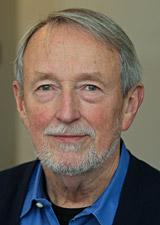
How Do Receptors Activate Trimeric G Proteins?
About the speaker

Henry Bourne
Department of Pharmacology, University of California – San Francisco
Dr. Bourne received an A.B. degree in History and Literature from Harvard College in 1960 and an M.D. from Johns Hopkins University in 1965. He was an intern and resident in internal medicine at Columbia Presbyterian Medical Center and a Research Associate in the Laboratory of Chemical Pharmacology at the National Institutes of Health (1966-68). Since 1971, Dr. Bourne has been at the University of California at San Francisco where he currently is a Professor of Medicine and Pharmacology.
Dr. Bourne's research interests are in the area of molecular signaling, with an emphasis on understanding how GTP-binding proteins (G proteins) couple signals received by cell surface (hormone) receptors to specific biological responses that occur within cells. His laboratory has been responsible for a number of seminal discoveries that have greatly enhanced our appreciation of how alterations in the normal functions of G proteins give rise to a variety of pathological states including cancer. In particular the work of Dr. Bourne and his colleagues have led to novel insights into the molecular basis by which G proteins regulate the key metabolic enzyme adenylyl cyclase, how cholera toxin imparts a severe loss of regulation of this biological pathway, and how different mutations of G proteins give rise to pituitary and endocrine cancers and to other syndromes associated with pituitary and endocrine abnormalities.
Dr. Bourne is a member of the American Academy of Arts and Sciences and the National Academy of Science. He has been an Established Investigator of the American Heart Association, a Burroughs Welcome Scholar in Clinical Pharmacology and winner of the Rawls-Palmer Award for Progress in Medicine. He also regularly authors "News and Views" for Nature Magazine, commenting on the latest breakthroughs in biomedical research.